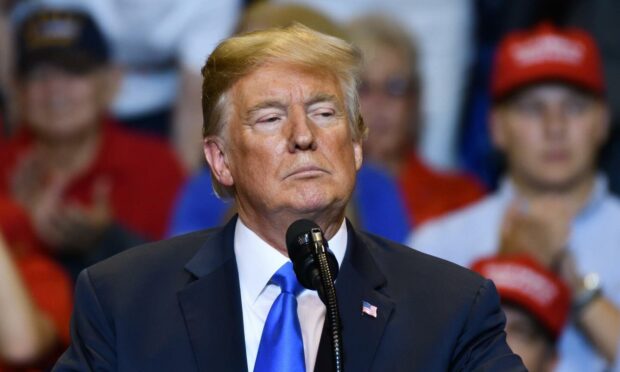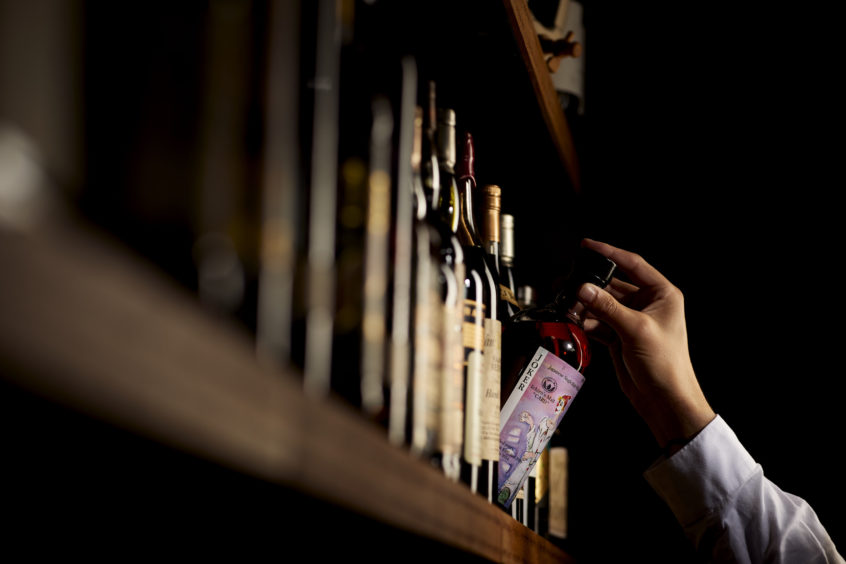
Donald Trump’s trade war on foreign imports into the US could “devastate” Scotland’s whisky industry and cost hundreds of millions of pounds.
The new president-elect promised to introduce tariff increases of up to 20% on goods entering the country ahead of his election victory this week.
The vow has prompted government officials to investigate the scale of the damage such a move could cause to the UK economy amid warnings it could be “as big as Brexit”.
Scotland’s whisky industry – which supplies one of the nation’s most valuable exports – could be one of the worst hit.
Sales to the US were worth a staggering £978 million last year alone, with Americans enjoying the equivalent of 127 million 70cl bottles.
But Scots businesses have already felt the pinch of huge tariffs under Trump’s leadership once before.

A 25% tariff on single malt Scotch whisky was levied between October 2019 and March 2021 and led to the industry losing out on more than £600 million in exports.
It followed an aerospace dispute over subsides between Airbus and Boeing.
That 18 month period cost businesses the equivalent of more than £1 million every day.
Fears over damaging impact
Lib Dem MP Wendy Chamberlain, who is chair of the Scotch whisky all-party parliamentary group at Westminster, said any new tariffs imposed by Trump could leave the industry reeling.
She said: “We all know that whisky is by far and away one of Scotland’s most valuable exports so the damaging impact of future tariff increases on jobs and the wider economy cannot be overstated.
“I want to see the Scottish and UK governments working together and doing everything they can to argue against these tariffs.
“That is one of the key ways we should be using our special relationship with the US to stand up for Scottish industry.”
The Scotch Whisky Association said producers on both sides of the Atlantic are united in their belief that zero-tariff trade is in the best interests of consumers and the industry.
It added: “Our world-class whiskies have benefited from zero-tariff trade for over a quarter of a century.
“It is in all our interests that our collective energy is focussed on growing our sectors, creating jobs and investment.”
Meanwhile, it has been reported the Treasury is assessing the knock-on economic impact of Trump’s promise to confront China and the European Union.
However, much will depend on whether he follows through on these pledges or if they were simply election grandstanding.
Calls to re-join single market
SNP Westminster leader Stephen Flynn has called on Prime Minister Keir Starmer to drop his Brexit red lines of refusing to re-join the single market and customs union as many European nations consider closer ties in the wake of Trump’s victory.
He said: “Keir Starmer’s Brexit red lines were always ridiculous, the reality of a Trump presidency must now make them redundant.
“It is basic common sense that if Trump tariffs become a reality, the only economic security and protection the UK can possibly seek is through re-joining the EU single market and customs union – the largest in the world.
“That is now the only path to protect our businesses and consumers in the face of deep economic uncertainty and the damage of global protectionism.”
In last month’s UK budget, prior to the US election, the Office for Budget Responsibility said weak growth in imports and exports over the medium term partly reflect the continuing impact of Brexit.
It said it would expect this to reduce the overall trade intensity of the UK economy by 15% in the long term.
Meanwhile, a study by the Centre for European Reform found tax revenues would have been around £40 billion higher on an annual basis if the UK had remained in the EU.

Enjoy the convenience of having The Sunday Post delivered as a digital ePaper straight to your smartphone, tablet or computer.
Subscribe for only £5.49 a month and enjoy all the benefits of the printed paper as a digital replica.
Subscribe © Kenny Smith
© Kenny Smith